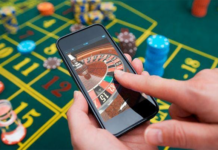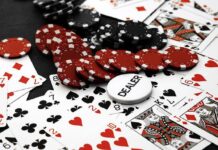เว็บยูฟ่า is an activity in which you bet something of value on an uncertain event. The object of gambling is to win money or a prize. It is a type of risk-reward transaction and requires careful consideration. While gambling can be recreational, there are also negative effects on your mental health. Learn more about the mental problems associated with gambling.
Compulsive gambling
Compulsive gambling is a persistent problem caused by the inability to resist impulses to gamble. Compulsive gambling disrupts daily activities and impairs personal relationships. People with this disorder view gambling as a source of action, excitement, and money. In order to fund their gambling habit, they often resort to illegal methods. This can result in significant loss of time and money. It may even make home life miserable.
Treatment options for compulsive gambling include counseling, medication, and lifestyle changes. Early intervention may help prevent the condition from worsening. Self-help groups such as Gamblers Anonymous can be helpful. More serious cases may require a residential or inpatient treatment program. Other treatments may include therapy for substance abuse and mental health problems.
Illegal gambling
Illegal gambling is defined as an activity where the outcome of a wager depends on chance and that involves at least two or more participants in exchange for money or something of value. Gambling that involves wired communication or more than twenty or thirty players can also be considered illegal. However, each state has its own definition of what constitutes gambling, and laws can change to accommodate different types of games and betting activities. Once an activity becomes illegal, the consequences can be severe, including prison terms or worse.
Gambling is defined in New York law as any activity that involves placing a bet on the outcome of an event or game of chance. This includes gambling on fantasy sports, cockfighting, dice, car racing for titles, and sports betting. Using an online gambling website is not considered illegal, but placing bets on a regular basis is.
Recreational gambling
Recreational gambling is gambling that you do for fun, and not for making money. A recreational gambler knows their way around the casino and plays only games they feel have a chance of winning and losing slowly. Recreational gambling is not for people who are under the influence of drugs or alcohol. There are many ways to play, including online casinos.
The National Research Council has found that most adults have gambled in the past year. Although only a small percentage of these gamblers have experienced problem gambling, recreational gambling is still a significant public health concern. The study’s results suggest that better understanding of recreational gambling could help improve public health.
Mental health issues associated with compulsive gambling
Whether the problem is social or financial, compulsive gambling can impact a person’s life in a number of ways. Treatment options can include therapy and medication, as well as lifestyle changes. Treatment for compulsive gambling is often difficult to achieve, and many people are reluctant to seek help for the disorder. But for those who suffer from compulsive gambling, the treatment process can help them regain control of their lives and recover from the damage that gambling has done to their finances and relationships.
Compulsive gambling is often accompanied by underlying mental health conditions, including depression, anxiety, or substance abuse. While it is more common in younger and middle-aged adults, it can also develop in older adults. It is important to note that compulsive gambling and mental health disorders are often co-occurring conditions and require the same treatment. As with other addictive behaviors, gambling can exacerbate existing mental health conditions, including anxiety disorders, depression, and stress. In addition, compulsive gambling may worsen substance abuse issues, such as alcohol or drug abuse.
Symptoms of compulsive gambling
Symptoms of compulsive gambling include loss of self-control and an inability to stop the urge to gamble. Gambling leads to a loss of savings and increased debt, and the compulsive gambler may resort to illegal means to cover up their behavior. The compulsion to gamble may even lead to the theft and fraudulent use of assets. The problem of compulsive gambling can destroy a person’s relationships and finances, which is why treatment is essential.
The first step in treating compulsive gambling is seeking professional help. A health care provider will discuss your gambling habits with you and may also talk to family members to determine whether you have a gambling addiction. However, it is important to note that no medical information will be released without your permission. It is also important to note that some medications may have side effects that interfere with your ability to gamble. Therefore, a physical examination is recommended to rule out other physical conditions that may be causing your compulsive behavior.















